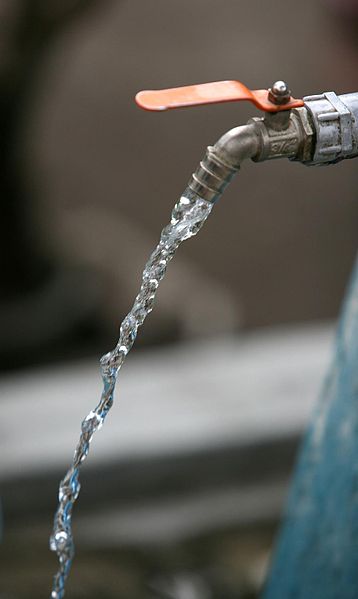The water industry provides drinking water and wastewater services to residential, commercial, and industrial sectors of the economy. Typically public utilities operate water supply networks. The water industry does not include manufacturers and suppliers of bottled water, which is part of the beverage production and belongs to the food sector.
Drinking water
Drinking water or potable water is water that is safe for ingestion, either when drunk directly in liquid form or consumed indirectly through food preparation. It is often supplied through taps, in that case, it is also called tap water. Typically in developed countries, tap water meets drinking water quality standards, even though only a small proportion is actually consumed or used in food preparation. Other typical uses for tap water include washing, toilets, and irrigation. Greywater may also be used for toilets or irrigation. Its use for irrigation however may be associated with risks.
Drinking water that is supplied through a tap (tap water).
Drinking water vending machines in Thailand. One litre of potable water is sold (into the customer's own bottle) for 1 baht.
Example for physical and chemical parameters measured in drinking water samples in Kenya and Ethiopia as part of a systematic review of published literature.
The "F-diagram" (feces, fingers, flies, fields, fluids, food), showing pathways of fecal–oral disease transmission. The vertical blue lines show barriers: toilets, safe water, hygiene and handwashing.





